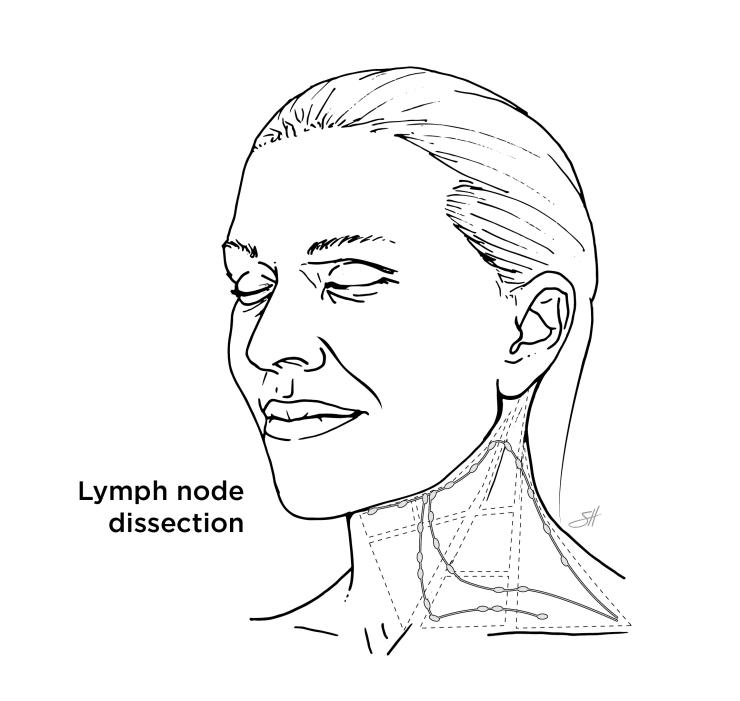
What is neck dissection?
A neck dissection is surgery to remove all or some of the lymph nodes and surrounding tissue from the neck. Lymph nodes are small, round or bean-shaped glands. They remove germs from your body, help fight infection, and trap cancer cells. This surgery is most often done to treat cancer of the head and neck.
You and your doctor will plan your treatment based on your wishes and the reason for your surgery. Every person’s treatment is different. Lymph node dissections for thyroid cancer are done at the same time as the initial surgery for thyroid cancer removal.
You will be asleep during the surgery. Your doctor will make a single cut (incision) across the middle of your neck. The length of this cut depends on which lymph nodes must be removed. These cuts are called incisions. They are closed with stitches that will dissolve on their own so that they do not need to be removed after your surgery. Your incision may also have protective glue over it. This glue will dissolve on its own after 2 weeks. The incision will leave a scar that fades with time.
Most people stay in the hospital for one day after surgery. You may be able to go back to work and your normal routine within two weeks after the surgery.
Having cancer can be scary. You may feel many emotions and may need some help coping. Seek out family, friends, and counselors for support. You also can do things at home to help you feel better while you go through treatment. Your doctor can guide you to many local resources for support and more information. Call the American Cancer Society (1-800-227-2345) or visit its website at www.cancer.org for more information.
Lymph system
The lymph system is a network of vessels and organs throughout the body. This system carries lymph fluid, nutrients, and waste material between the body tissues and the bloodstream.
The lymph system includes the lymph nodes, tonsils, thymus, spleen, and bone marrow. The lymph nodes filter lymph fluid as it flows through them. The nodes trap bacteria, viruses, and other foreign substances, which are then destroyed by special white blood cells called lymphocytes.
The lymph system is also an important part of the immune system, the body's defense against disease. When there is a problem in the body, the nearby lymph nodes may become swollen. For example, if a person has a throat infection, lymph nodes in the neck may swell and become tender.
Sometimes diseases, like cancer, can begin in the lymph system or spread to it.
© 2016-2019 Healthwise, Incorporated.








 Credit
Credit
